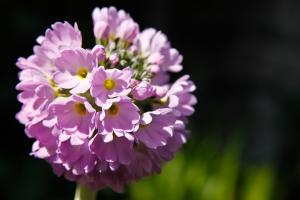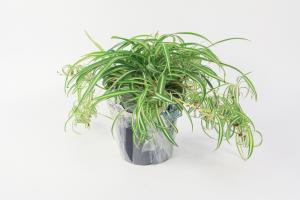Introduction
Aloe vera is a succulent plant that has been used for medicinal purposes for thousands of years. Its popularity stems from its juicy, nutrient-rich leaves that are filled with a clear gel-like substance. The gel is known for its various therapeutic properties, making it a popular ingredient in many healthcare and beauty products. In recent years, aloe vera has been touted as a superfood and remedy for various ailments, so it's not surprising that people are curious about its water solubility.
What does Water Soluble mean?
Water soluble means that a substance dissolves in water. When a substance is water soluble, it means that it can be dissolved in water, and the solution can be evenly distributed. Water soluble substances are generally easier to digest and absorb, making them more effective for medicinal and nutritional purposes. They can also be used in products such as lotions, creams, and serums, where they can be easily absorbed by the skin.
Is Aloe Vera Plant Water Soluble?
The question of whether aloe vera plant is water soluble is a bit complicated. Although the clear gel inside the leaves is water soluble, the plant itself is not. The gel is water-soluble because it contains polysaccharides, which are long chains of sugars that are easily dissolved in water. These polysaccharides provide a soothing and anti-inflammatory effect when applied topically to the skin or ingested.
However, the outer layer of the aloe vera leaf, which contains the plant's waxy cuticle, is water-resistant. This cuticle helps the plant retain moisture and protect itself from excess water loss. This means that the outer layer of the aloe vera leaf is not water-soluble, and it cannot be digested by the human body or used in water-based products.
Benefits of Aloe Vera Gel
Even though the aloe vera plant is not water-soluble, the gel inside the leaves is highly beneficial for various health and beauty purposes. The gel is rich in vitamins, minerals, and antioxidants that support healthy skin and immune function. It has anti-inflammatory, antibacterial, and antimicrobial properties that can help soothe and heal skin conditions such as acne, eczema, and psoriasis. The gel also contains enzymes that aid in digestion and promote gut health.
The polysaccharides in aloe vera gel can help stimulate the production of hyaluronic acid and collagen, which are two essential components of healthy, youthful-looking skin. When consumed, aloe vera gel can also help reduce inflammation in the body and support the immune system.
Conclusion
Although the aloe vera plant itself is not water-soluble, the clear gel inside its leaves is highly beneficial for various medicinal and beauty purposes. The gel contains polysaccharides that are easily dissolved in water, making it an excellent ingredient in skincare and health products. It's important to remember that aloe vera is not a cure-all, and it's essential to speak with a healthcare professional before using it for medicinal purposes.
Despite the complexity of aloe vera's water solubility, it remains a popular and highly sought-after plant for its myriad of therapeutic properties. Its versatility and widespread availability make it a valuable asset in maintaining healthy skin, gut, and immune function.

 how many times do yo...
how many times do yo... how many planted tre...
how many planted tre... how many pine trees ...
how many pine trees ... how many pecan trees...
how many pecan trees... how many plants comp...
how many plants comp... how many plants can ...
how many plants can ... how many plants and ...
how many plants and ... how many pepper plan...
how many pepper plan...





























